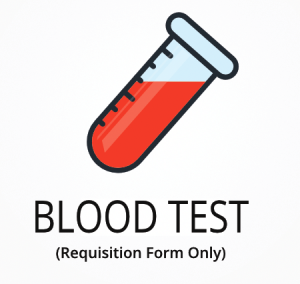Ordering the ImmunoGenomic Profile | Europe
Ordering the ImmunoGenomic Profile | Europe helps identify how your immune system responds to inflammation, allergies, and chronic conditions by analyzing key immune markers and genetic factors. Interestingly, this test can reveal subtle immune imbalances that may not show up in standard blood work, offering a more detailed look at immune function.
When ordering this test, you gain access to specific benefits:
- Pinpoints immune system patterns linked to chronic inflammation and autoimmune reactions.
- Identifies genetic markers that may affect your response to infections, allergies, and environmental triggers.
- Highlights cytokine activity, which can help guide targeted nutrition and lifestyle changes.
- Supports early detection of immune shifts before symptoms become more severe.
- Provides actionable data for your healthcare provider to personalize your care plan.
Who Should Consider Immune and Genetic Marker Testing
People who experience ongoing joint pain, skin flare-ups, or frequent respiratory issues may benefit from this test, especially if symptoms have not improved with standard treatments. For example, someone who has tried multiple approaches for digestive discomfort and fatigue without clear answers may find this test helpful in uncovering immune-related causes.
Ordering this test may also be useful in these situations:
- Persistent sinus congestion or allergies that do not respond to common remedies
- Unexplained mood swings or brain fog that interfere with daily focus
- Recurring skin rashes or eczema that flare up after certain foods
- Difficulty recovering from mild infections or feeling run down for weeks
- Family history of autoimmune conditions, even if symptoms are mild or unusual
This test is recommended for those seeking measurable answers about immune function, inflammation, and genetic risk factors that may be affecting energy, digestion, or skin. Delaying this test could mean missing early signs of immune imbalance, which may make it harder to address symptoms before they progress.
Preparing for Your Immune and Genetic Assessment
Fasting is not required for this test, but always check the test kit instructions for any special preparation steps. Make sure to follow whatever guidance your doctor or healthcare practitioner gives you, as this helps ensure your sample is collected correctly and your results are as useful as possible.
Labs Included When Ordering Your ImmunoGenomic Profile
| Test Name | Reference Range | What This Marker Means | Low and High Levels of ImmunoGenomic Profile |
|---|---|---|---|
| Chronic Inflammation Markers | |||
| IL-1ß (interleukin-1beta) | 0.0 – 5.0 | IL-1ß is a protein made by immune cells that signals inflammation in the body. It plays a role in joint pain, swelling, and chronic inflammatory conditions. |
High levels mean your body may be experiencing ongoing inflammation, which can be linked to joint pain or autoimmune activity.
Low levels mean your immune response may be less active, which could affect your ability to fight infections. |
| Th-1 Cytokines (Viral Infection & Cancer) | |||
| TNF-α (tumor necrosis factor-alpha) | 0.0 – 8.1 | TNF-α is a protein that helps control inflammation and is involved in the body’s defense against infections and abnormal cell growth. It is often higher in autoimmune and chronic inflammatory conditions. |
High levels mean there may be increased inflammation or immune activity, sometimes seen in autoimmune or chronic illness.
Low levels mean your immune system may not be responding strongly to threats, which can affect how you fight infections. |
| Th-2 Cytokines (Allergy, Asthma, and Atopy) | |||
| IL-4 (interleukin-4) | 0.0 – 3.0 | IL-4 is a signaling protein that helps regulate allergic responses and the production of antibodies. It is often higher in people with allergies or asthma. |
High levels mean your body may be reacting to allergens or have a tendency toward allergic conditions.
Low levels mean your immune system may be less likely to trigger allergic reactions. |
| IL-6 (interleukin-6) | 0.0 – 7.0 | IL-6 is a protein that rises during inflammation and infection. It is linked to chronic illness, fatigue, and metabolic changes. |
High levels mean your body may be fighting inflammation or infection, which can affect energy and recovery.
Low levels mean there may be less inflammation, but very low levels can sometimes signal immune suppression. |
| IL-10 (interleukin-10) | 0.0 – 9.1 | IL-10 is an anti-inflammatory protein that helps calm the immune response. It can help prevent tissue damage from too much inflammation. |
High levels mean your body is working to reduce inflammation, which can be helpful in chronic inflammatory states.
Low levels mean your immune system may not be able to control inflammation, which can lead to tissue damage. |
| IL-13 (interleukin-13) | 0.0 – 3.9 | IL-13 is a protein involved in allergic reactions and asthma. It helps regulate mucus production and airway sensitivity. |
High levels mean you may be more likely to have allergies, asthma, or increased mucus production.
Low levels mean your body may have a lower risk of allergic reactions, but very low levels can affect immune balance. |
Reference ranges may change slightly as labs update their standards, so always review your results with your healthcare provider for the most current information.
ImmunoGenomic Profile FAQ
Is there ImmunoGenomic Profile testing near me?
This is a test kit that can be collected at a local draw site—check the draw location link at the top of the page. For those dealing with ongoing inflammation or allergy symptoms, having a nearby collection site makes it easier to get tested without delay.
How do I interpret the test results?
While your treating physician should review your results, you can also use our one-on-one test results review service with our clinical team for a detailed explanation and next steps.
What is the cost of the test?
The price listed for this test includes standard shipping to you and return shipping to the lab, though local draw fees may apply. Ordering this test can help you address immune-related symptoms sooner, which may speed up your path to feeling better.
How often should I retest?
Retesting is usually recommended every 6 to 12 months, especially if you are monitoring changes in immune markers or adjusting your care plan. Regular testing helps track progress and guides any needed changes in your approach.
How accurate is the test?
This test uses advanced immunoassay and genetic analysis methods, with a specificity of 98% and sensitivity of 97% for the included markers. TrueHealthLabs.com partners with CLIA-certified and CAP-certified laboratories to uphold rigorous testing standards for dependable results.
Important Notes
READ: These tests are available for European countries only.
Medical Review Board
Reviewed by Jeff Donohue M.D. from Body Logic and Brady Hurst DC, CCCN. Written by True Health Lab’s team of editorial health contributors.
Disclaimer: This information is for educational purposes only and not intended as medical advice. Consult your healthcare provider for personalized guidance.
Why Customers Trust True Health Labs - What People are saying
Also rated 4.6 out of 5 based on 3452 ShopperApproved reviews- See all TrueHealthLabs.com reviews.







